Throwback Thursday is when we trawl through the That's archives for a work of dazzling genius written at some point in our past. We then republish it. On a Thursday.
By Isobel Yeung, photos by Nicky Almasy
“It’s good now,” says Frank Xu, taking a breather from a game of basketball on a carpark-turned-court. “When I’m home, my parents feed me too much because they can afford it, and strangers tell me I’m fat. But no one tells me how I can lose weight.”
Fourteen-year-old Frank is a guest at Dianfeng Jianzhong, the first of a number of privately-owned fat camps to have sprung up on the outskirts of Shanghai, where children and adults pay up to RMB20,000 a month for a regime of restricted diet and four hours of enforced exercise a day.
“It’s very easy to get overweight when you like food,” says Frank, who weighed 95 kg when we met him. He wants to be a pop star and is dreaming big, with aims of losing 30 kg over his four-month stay. “I want to be a singer when I’m older, so I need to be thin,” he explains.
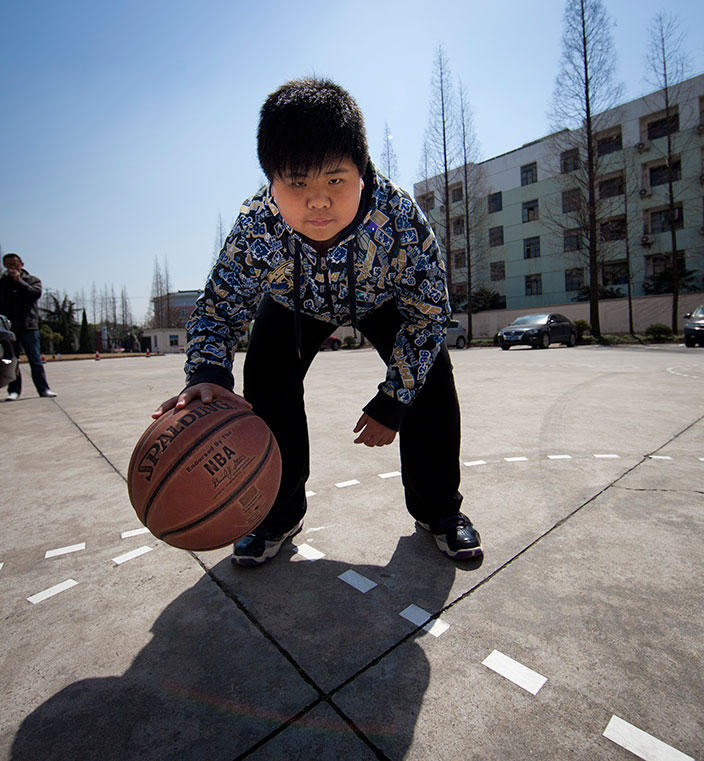
Frank Xu wants to lose weight so he can become a pop star.
Heading inside and past a group of puffing ping pong players, we enter a shabby living room where 12 red-faced guests aged from 6 to 50 gaze at an old Cantonese war film as they sweat it out rhythmically on cross-trainers. The trodden-heel trainers have seen better days, while mini stacks of snacks sit conspicuously by one or two of the machines.
Moving on to a modest indoor pool, where several Speedo-clad figures splash up and down the lanes, we meet 23-year-old Zhu Min. She arrived at the camp ten days ago weighing 125 kg. She says she was rejected from all her job applications because of her weight.
“I need to lose weight to become independent. I’ll take any job I can get,” says Zhu. She hasn’t fared any better in her love life than she has in her work life. “Outside here I’ve never had a boyfriend because men want slim women. I don’t really have friends either.”
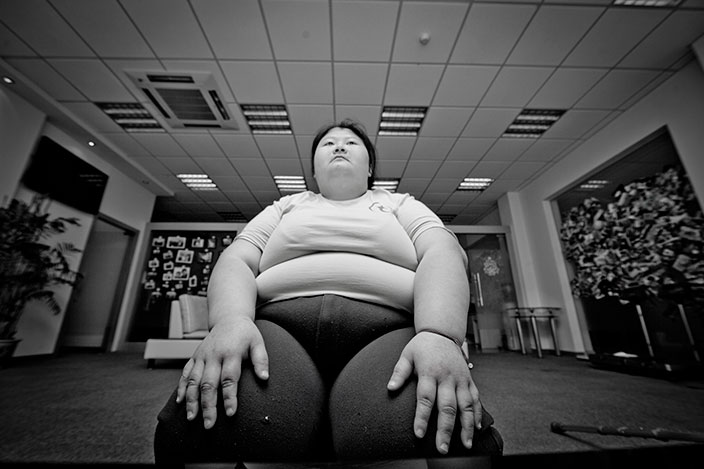
Residents of Diangfeng Jiangzhong must work out four hours a day.
Dianfeng Jianzhong has opened in response to China’s growing obesity problem. There are close to 100 million obese people in China today, according to the World Health Organization, more than five times the 18 million in 2005. It is an urban problem too, with obesity rates exceeding 20 percent in many cities.
So how have the likes of Frank Xu and Zhu Min got to where they are, when just half a century ago their grandparents were experiencing the biggest famine in human history?
Ronald McDonald and the Colonel are the easiest culprits to blame: the fast food industry is one of China’s fastest developing sectors, with annual growth rates of around 25 percent according to research firm RNCOS. But increasing incomes is what has changed the Chinese diet the most.
Wealthier families ditch traditional meals of rice and steamed vegetables, replacing them with fat-packed meat drenched in litres of calorific cooking oil, all chased down with sugary drinks. And then there are the processed snacks grazed on between meals.
“I’ve never had a boyfriend because men want slim women. I don’t really have friends either.”
Growing prosperity has also led to the couch potato syndrome known all too well in the West, with less physical labor, fewer trips on foot or by bicycle and more time spent ogling a TV screen or playing in cyberspace.
Cultural issues also come into play, with the One Child policy exacerbating the issue. “One child has Mum, Dad and two sets of grandparents,” says Paul French, author of Fat China: How Expanding Waistlines Are Changing a Nation. “It’s what we call the six-pocket syndrome. All of that money is being lavished on one little emperor to whom nobody can say no.”
Parents and grandparents also live by the ‘plump is prosperous’ motto, chubby children seen as healthy and cute. But beneath their sweet exteriors lie serious consequences. Causing major chronic diseases such as diabetes, heart disease and hy- pertension, obesity is putting an annual strain of RMB25 billion on the healthcare system.
So are pricey fat camps really the solution? “The challenge for fat camps is that they really only focus on the condition for a very brief period of time, and in an environment that is away from the person’s normal life,” says Dr. Tyrone Bristol, Chief Medical Officer/Pediatrician at Shanghai United Family Hospitals.
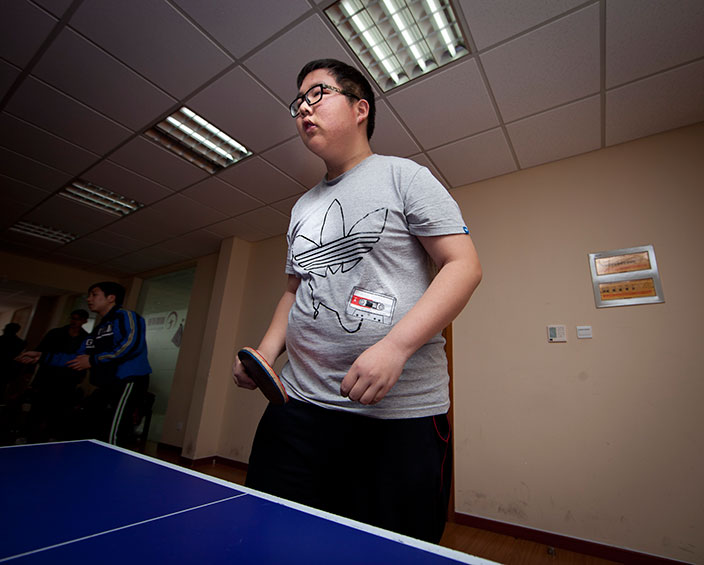
Children and adults pay up to RMB20,000 a month for a regime of restricted diet and four hours of enforced exercise a day at Dianfeng Jianzhong.
“A lot of people – especially kids – talk about what happens in school, what happens at home, the need for parental support and assistance,” he continues. “So when you go from the camp back into this environment, if none of these things has changed, then there is the issue with relapsing.
“Another problem is expectation. They go to a camp for six weeks; they lose a certain amount of weight. But if they come home and gain it back they are disappointed, because they had this expectation that something would change remarkably.
“Compare this to monthly meetings with a nutritionist, a dietician, maybe seeing a doctor routinely, limiting the television at home, trying to get 30-60 minutes of exercise a day... all things that can be done in the home environment that have shown to have longer term impact.”
With Chinese obsession with quick fixes, however, the number of camp recruits continues to swell (just as supermarket shelves are raided of their various slimming solutions, from teas to pills to food supplements). Currently housing 30 patients, the center has doubled its intake in the last two years.
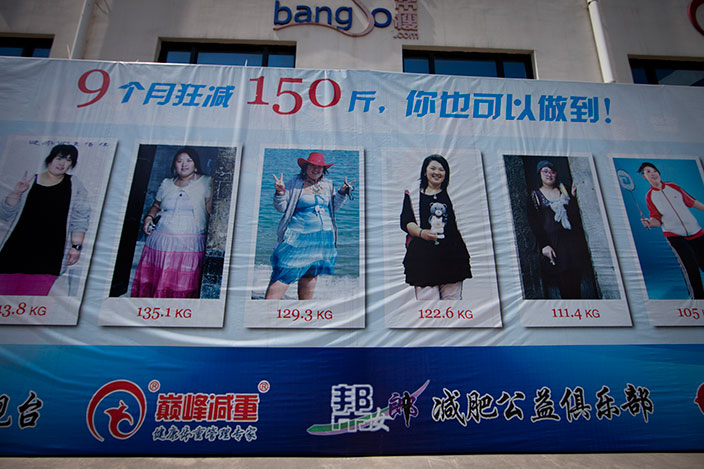
Dianfeng Jianzhong, the first of a number of privately-owned fat camps to have sprung up on the outskirts of Shanghai.
Dianfeng Jianzhong sales director Beck Liu is the first to admit that the desire to slim down must come from the guests themselves. “People who come here must want to lose weight, otherwise we can’t help them. Sometimes it’s very hard,” he says, pointing at a girl, “She’s so lazy, she won’t even do her shoes up properly. And when she’s hungry it’s impossible to stop her eating.”
The thought process behind the camp is to change eating and exercise habits gradually and in a comfortable environment. As well as individual sports, group games and activities are organized throughout the week, giving patients the opportunity to socialize in a low-pressure atmosphere.
“It’s a very open environment here,” says Frank. “I don’t feel the pressure that I do outside. Pressure from my parents and grandparents and society.”
Dr. Bristol says that may just be shutting out the wider problem for the short term though. “The goal is to try to find solutions within your normal world that will be more long lasting than a six-week program. There is data supporting these kinds of interventions. We are still waiting for data support for fat camps.”
See listing for Dianfeng Jianzhong.
This article first appeared in the June 2012 issue of That's Shanghai. To see more Throwback Thursday posts, click here.







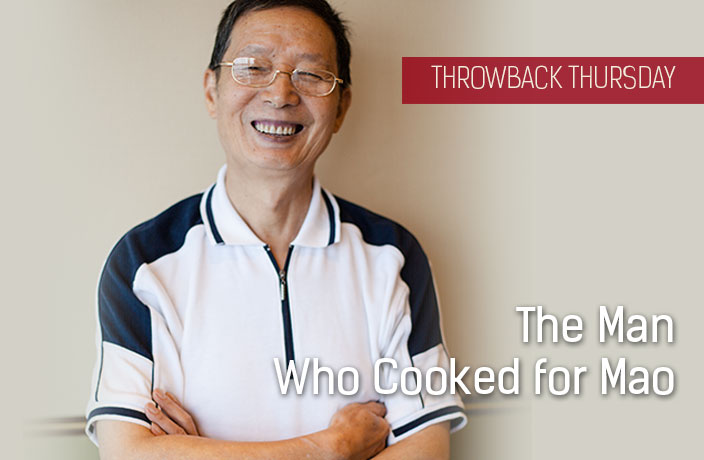














0 User Comments